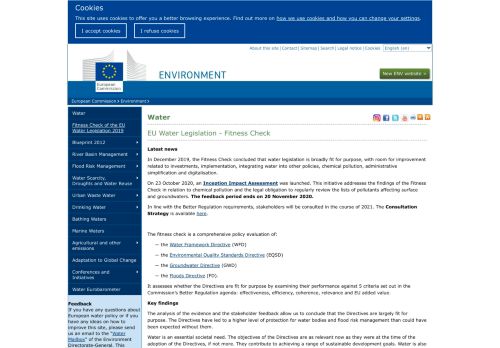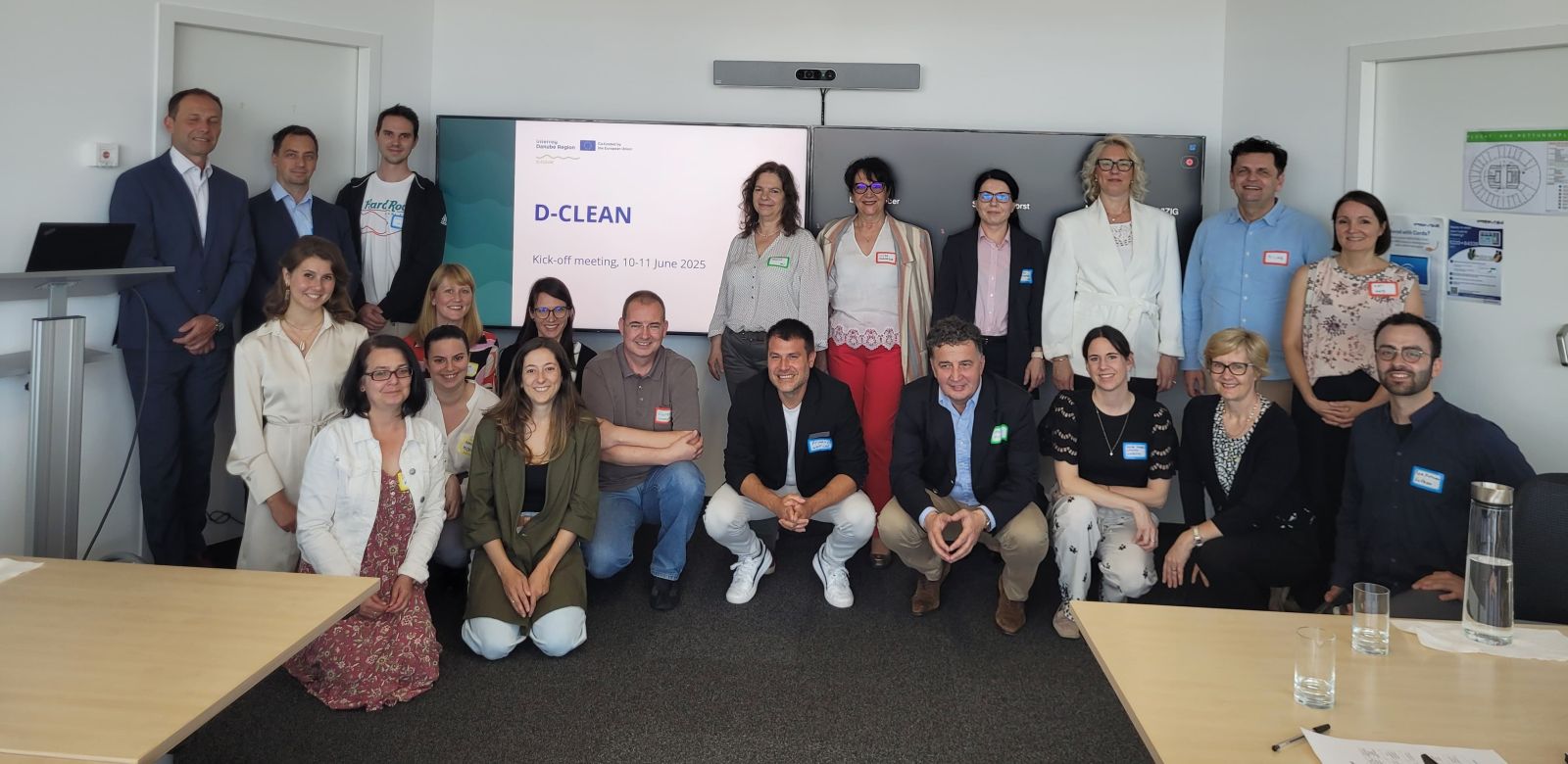
Voice of the Danube
The European Commission announced the fitness check of European water legislation in October 2017 with the publication of the roadmap. The fitness check was a comprehensive policy evaluation of the Water Framework Directive (WFD), the Environmental Quality Standards Directive (EQSD), the Groundwater Directive (GWD) and the Floods Directive (FD).
It assessed whether the Directives are fit for purpose by examining their performance against 5 criteria set out in the Commission’s Better Regulation agenda: effectiveness, efficiency, coherence, relevance and EU added value.
The analysis concluded that the Directives are largely fit for purpose, as they have have led to a higher level of protection for water bodies and flood risk management than could have been expected without them.
The results for the Water Framework Directive (WFD), complemented by the Environmental Quality Standards Directive and the Groundwater Directive, are mixed. On the one hand, the WFD has been successful in setting up a governance framework for integrated water management for the more than 110,000 water bodies in the EU, slowing down the deterioration of water status and reducing chemical pollution.
On the other hand, the Directive’s implementation has been significantly delayed and less than half of the EU’s water bodies are in good status, even though the deadline for achieving this was 2015, except for duly justified cases. For the Floods Directive it is too early to draw conclusions, as its first implementation cycle only started in 2016, but this fitness check finds that the Directive has improved flood risk management.
Factors that have contributed to the effectiveness of the Directives in progressing towards their objectives include (1) the list of priority substances, (2) the (binding) cross-references to the WFD’s objectives in other EU policies, (3) EU funding, (4) the widely applicable non-deterioration principle and (5) the Directives’ monitoring requirements.
One of the factors that hindered the achievement of better results was the fact that it proved more difficult than envisaged to establish a governance framework that takes into account the specific conditions in each Member State. In addition, good status depends not only on mitigation measures to address current pressures, but also on restoration measures to address pressures from the past. Finally, good status of water bodies also critically depends on the full implementation of other pieces of EU legislation, such as the Nitrates Directive and the Urban Waste Water Treatment Directive, as well as better integration of water objectives in other policy areas such as agriculture, energy or transport. This has not happened yet at the scale necessary.
The analysis in this fitness check found that there is a trade-off between the flexibility of the Directives, which is needed to enable Member States to implement the most cost-effective measures, and the complexity that this flexibility creates, which forms an impediment to enforceability and achieving better results.
The fact that the WFD’s objectives have not been reached fully yet is largely due to insufficient funding, slow implementation and insufficient integration of environmental objectives in sectoral policies, and not due to a deficiency in the legislation. Based on the findings, progress towards good status can be expected to be slow but steady.
As for future challenges, this fitness check finds that the Water Framework Directive is sufficiently prescriptive with regard to the pressures to be addressed, and yet flexible enough to accommodate emerging challenges such as climate change, water scarcity and pollutants of emerging concern (e.g. micro-plastics and pharmaceuticals). A key area where there is room to improve and to achieve better results is on chemicals.
On 23 October 2020, an Inception Impact Assessment was launched. This initiative addresses the findings of the Fitness Check in relation to chemical pollution and the legal obligation to regularly review the lists of pollutants affecting surface and groundwaters. The feedback period ends on 20 November 2020. Please consult the link below for further details.
Water - Environment - European Commission
Water is life! Protecting water resources, ecosystems and the water we drink and bathe in is one of the cornerstones of EU environmental protection.


